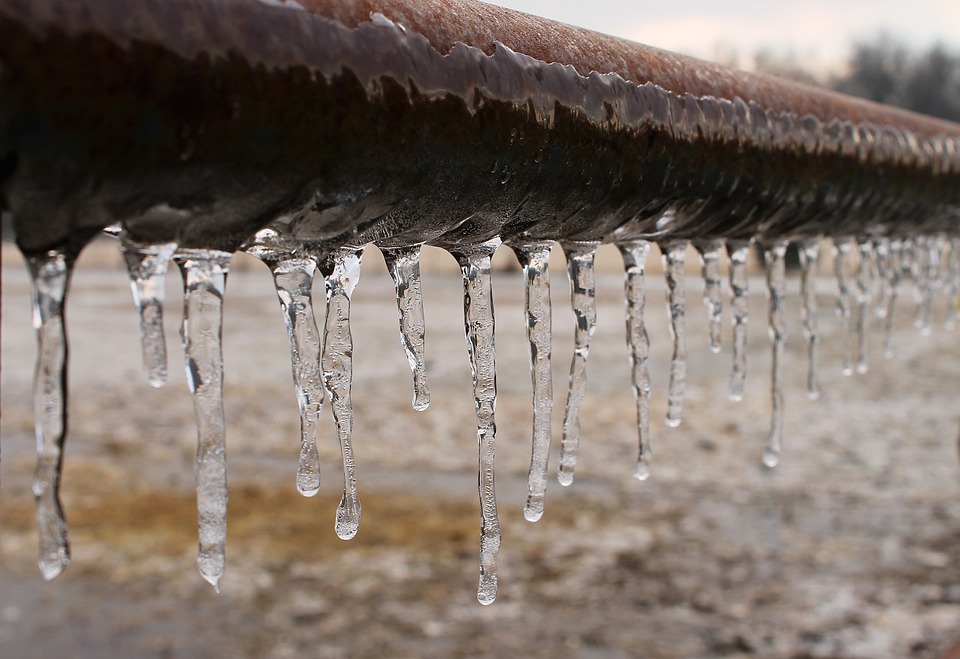Preventing Frozen Pipes in Cold Weather: Professional Advice
Preventing Frozen Pipes in Cold Weather: Professional Advice
Blog Article
This post in the next paragraphs involving How to Prevent Your Pipes From Freezing is rather captivating. Read it for your own benefit and decide what you think of it.

Winter can ruin your pipes, especially by freezing pipelines. Right here's how to prevent it from taking place and what to do if it does.
Intro
As temperature levels decrease, the danger of frozen pipelines boosts, potentially leading to pricey repair services and water damage. Understanding just how to avoid icy pipelines is vital for property owners in cool climates.
Understanding Icy Pipes
What triggers pipes to freeze?
Pipelines freeze when exposed to temperature levels below 32 ° F (0 ° C) for prolonged durations. As water inside the pipes ices up, it increases, putting pressure on the pipeline wall surfaces and potentially creating them to break.
Dangers and damages
Icy pipelines can result in water supply interruptions, property damage, and costly fixings. Ruptured pipes can flood homes and cause substantial architectural damages.
Indicators of Frozen Pipes
Identifying frozen pipes early can prevent them from bursting.
How to identify frozen pipes
Try to find reduced water flow from faucets, unusual odors or sounds from pipelines, and noticeable frost on subjected pipes.
Prevention Tips
Insulating susceptible pipes
Wrap pipes in insulation sleeves or utilize heat tape to shield them from freezing temperatures. Concentrate on pipes in unheated or exterior locations of the home.
Home heating techniques
Keep interior areas properly heated up, specifically locations with pipes. Open up cabinet doors to allow warm air to circulate around pipes under sinks.
Safeguarding Outside Plumbing
Garden hose pipes and outside faucets
Disconnect and drain yard pipes before winter season. Install frost-proof spigots or cover exterior taps with protected caps.
What to Do If Your Pipes Freeze
Immediate activities to take
If you believe icy pipelines, maintain faucets open up to soothe stress as the ice melts. Make use of a hairdryer or towels soaked in hot water to thaw pipelines slowly.
Long-Term Solutions
Architectural changes
Consider rerouting pipes far from outside wall surfaces or unheated areas. Add additional insulation to attic rooms, cellars, and crawl spaces.
Upgrading insulation
Invest in top notch insulation for pipelines, attic rooms, and wall surfaces. Proper insulation helps maintain consistent temperatures and decreases the danger of frozen pipes.
Conclusion
Avoiding frozen pipes requires aggressive actions and fast actions. By recognizing the reasons, signs, and safety nets, homeowners can shield their pipes during cold weather.
Helpful Tips to Prevent Frozen Pipes this Winter
UNDERSTANDING THE BASICS: WHY PIPES FREEZE AND WHY IT’S A PROBLEM
Water freezing inside pipes is common during the winter months, but understanding why pipes freeze, and the potential problems it can cause is crucial in preventing such incidents. This section will delve into the basics of why pipes freeze and the associated problems that may arise.
THE SCIENCE BEHIND FROZEN PIPES
When water reaches freezing temperatures, it undergoes a physical transformation and solidifies into ice. This expansion of water as it freezes is the primary reason pipes can burst. As the water inside the pipe freezes, it expands, creating immense pressure on the walls. If the pressure becomes too great, the pipe can crack or rupture, leading to leaks and water damage.
FACTORS THAT CONTRIBUTE TO PIPE FREEZING
Low Temperatures: Extremely cold weather, especially below freezing, increases the risk of pipes freezing. Uninsulated or Poorly Insulated Pipes: Pipes located in unheated areas, such as basements, crawl spaces, or attics, are more prone to freezing. Insufficient insulation or lack of insulation altogether exacerbates the problem. Exterior Wall Exposure: Pipes running along exterior walls are susceptible to freezing as they encounter colder temperatures outside. Lack of Heating or Temperature Regulation: Inadequate heating or inconsistent temperature control in your home can contribute to frozen pipes. PROBLEMS CAUSED BY FROZEN PIPES
- Pipe Bursting: As mentioned earlier, the expansion of water as it freezes can cause pipes to burst, resulting in significant water damage.
- Water Damage: When pipes burst, it can lead to flooding and water damage to your property, including walls, ceilings, flooring, and personal belongings.
- Structural Damage: Prolonged exposure to water from burst pipes can compromise the structural integrity of your home, leading to costly repairs.
- Mold and Mildew Growth: Excess moisture from water damage can create a favorable environment for mold and mildew growth, posing health risks to occupants.
- Disrupted Water Supply: Frozen pipes can also result in a complete or partial loss of water supply until the issue is resolved.
WHY CERTAIN PIPES ARE MORE PRONE TO FREEZING
- Location: Pipes located in unheated or poorly insulated areas, such as basements, crawl spaces, attics, or exterior walls, are at higher risk of freezing.
- Exterior Pipes: Outdoor pipes, such as those used for irrigation or exposed plumbing, are particularly vulnerable to freezing as they are directly exposed to the elements.
- Supply Lines: Pipes that carry water from the main water supply into your home, including the main water line, are critical to protect as freezing in these lines can affect your entire plumbing system.
- Underground Pipes: Pipes buried underground, such as those connected to sprinkler systems or outdoor faucets, can be susceptible to freezing if not properly insulated.
https://busybusy.com/blog/helpful-tips-to-prevent-frozen-pipes-this-winter/
:strip_icc()/snow-outdoor-faucet-pipes-4af65d1e5e904fb1aa7bf74071fe5d89.jpg)
I hope you enjoyed reading our part on 6 Ways to Prevent Frozen Pipes. Thank you so much for spending some time to browse our short article. Are you aware of someone else who is truly interested in the subject? Please feel free to share it. Thanks a bunch for your time. Kindly come by our blog back soon.
Phone Report this page